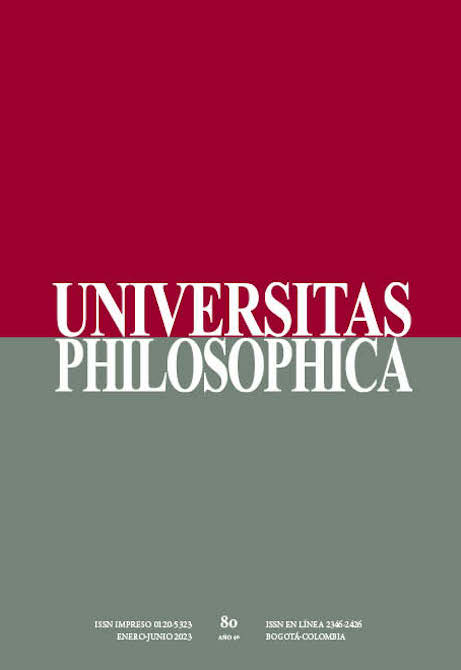Resumen
Una escala de valores se puede definir mediante dos componentes: un conjunto de valores y una relación de orden. Estos dos componentes dan cuenta de algunas opiniones populares sobre las escalas de valores que favorecen una suerte de relativismo axiológico. En esta contribución proponemos una estrategia de reducción que nos permite aceptar dichos componentes sin
necesariamente implicar un relativismo axiológico.

Esta obra está bajo una licencia internacional Creative Commons Atribución 4.0.
Derechos de autor 2023 J.-Martín Castro-Manzano



